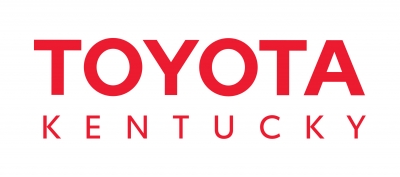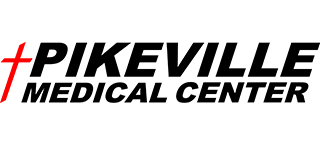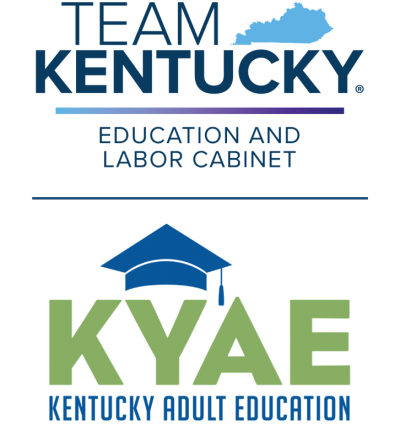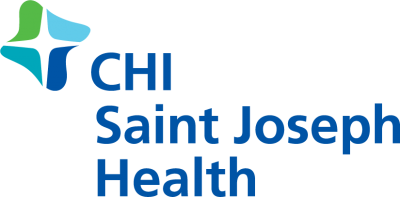Leadership Kentucky 2018 in Pikeville
LEADERSHIP KENTUCKY CLASS of 2018 in PIKEVILLE
October 17-19, 2018
By: Ron Bridges, LKY Class of 2018 Member, State Director, AARP Kentucky
The 2018 Class of Leadership Kentucky convened October 17-19 in Pikeville (Pike Co.) and Prestonsburg (Floyd Co.) where we were immersed in experiences curated to enlighten the Class about a community and a region engaged in reinventing itself. We had the opportunity to examine key drivers that civic leaders have prioritized and invested — Health Care/Medicine, Post-Secondary Education, and Heritage/Cultural Assets.
PIKEVILLE WELCOME
Upon arrival in Pikesville, the Class assembled in the Sturgill Board Room located in a renovated schoolhouse that is now home to UPike’s Coleman College of Business. The Class was welcomed to Pikeville and eastern Kentucky by a panel of community dignitaries including the Hon. Jimmy Carter, Mayor of Pikeville; Jordan Gibson (LKY18), President and CEO of Southeast Kentucky Chamber of Commerce; Tony Tackett, Executive Director of the Pike County Tourism CVB; and Jared Arnett, Executive Director of SOAR Inc. (Shaping Our Appalachian Region). We also heard from Rusty Justice (LKY13), co-owner of BitSource.
Observations - Pikeville Welcome
Mayor Carter pointed to two successful enterprises EnerBlu and Silverliner, which have begun operations in the community. The Mayor cited the region’s high performing workforce as being a key to landing both companies.
Chamber President and CEO Jordan Gibson reported that the Southeast Kentucky Chamber serves members operating in eight counties (Floyd, Johnson, Knott, Lawrence, Letcher, Magoffin, Martin, and Pike) in the region. Jordan along with Mayor Carter and Pike County Tourism executive Tony Tackett spoke of collaboration and its correlation to their successful efforts to market the area’s culture, quality of life and skilled workforce.
Shaping Our Appalachian Region (SOAR) is a non-partisan economic development agency that utilizes collaboration to expand job creation, enhance regional opportunity, innovation, and identity to improve the quality of life in 54 Eastern Kentucky counties. SOAR Executive Director Jared Arnett informed the Class that earlier in the week, SOAR was selected by KY Innovation to lead Appalachia’s new Regional Innovation for Startups and Entrepreneurs (RISE) consortium. With the RISE Appalachia designation, SOAR will be a catalyst in modernizing the way high-tech and high-growth potential businesses will be supported by the State. RISE Appalachia will establish eight offices throughout the region to leverage technology and the digital economy across creative industries, remote employers, and technology consumers in small business, advanced manufacturing, and healthcare/telemedicine.
Rusty Justice reflected on his (LKY13) experience and discussed his software development company - BitSource. The BitSource slogan is "A New Day, New Way" which is said to signify their intent to re-purpose the qualities of the local workforce by adopting the technology, specifically software development. Their vision is to grow a high tech community in Eastern Kentucky that drives innovation while allowing their associates to support their families without having to leave the area. Their mission is to create a sustainable business that attracts outside investments and yields acceptable profits while providing stable good paying jobs for Eastern Kentuckians.
TOUR - UNIVERSITY OF PIKEVILLE COLLEGES
The Class spent the remainder of the afternoon on a guided tour of two of the University’s state-of-the-art buildings that house the Kentucky College of Optometry and the Kentucky College of Osteopathic Medicine (KYCOM). The day on UPike’s campus was closed with a delightful evening in the home of the University’s president Dr. Burton Webb and his lovely wife, Dr. Kay Webb.
The University of Pikeville - Kentucky College of Optometry
The University of Pikeville is the 22nd school in the country to have a college of optometry. The College is housed in the Health Professions Education Building. Sixty students are admitted per class for a total of 240. The College and community will celebrate the first graduating class in the year 2020. The Kentucky College of Optometry ‘s overarching goal is to foster an effective and integrative learning-centered environment that provides opportunities for intellectual, personal and professional growth for students, staff, and faculty; implementing innovative educational programs enabling graduates to possess entry-level standards for the full scope practice of optometry in areas of rural America.
University of Pikeville - Kentucky College of Osteopathic Medicine (KYCOM)
KYCOM offers a four-year program toward attainment of the degree of Doctor of Osteopathic Medicine (D.O.). KYCOM’s purpose is to educate future primary care physicians to practice in rural Kentucky and other underserved areas. The KYCOM mission is to provide men and women with an osteopathic medical education that emphasizes primary care, encourages research, promotes lifelong scholarly activity, and produces graduates who are committed to serving the healthcare needs of communities in rural Kentucky and other Appalachian regions.
Observations - University of Pikeville Colleges Tour
Two-thirds of Kentucky’s counties do not have an ophthalmology practice, while optometrists have practices in 106 counties, including 77 percent of counties designated as “medically underserved.” The Class was impressed with the state-of-the-art facilities and technology-enhanced learning environment available to the students and faculty who make the Health Professions Education Building their home. UPike President Burton Webb and Kentucky College of Optometry leadership have proclaimed an impressive vision for the College – national renown as the preeminent institution for the training of vision care professionals -- the Mayo Clinic for eye care!
Equally impressive was learning about KYCOM, which was founded in 1997. While the Class was familiar with allopathic medicine, the philosophy and practice of osteopathic medicine were new for some. KYCOM faculty explained that osteopathic medicine was founded in the mid-nineteenth century on the premise of healing the body through osteopathic musculoskeletal manipulation. Faculty demonstrated the osteopathic manipulation technique on President Webb’s shoulders and reiterated the holistic approach to wellness. I began thinking of the whole-body interventions taught to DOs as a metaphor for the methodical and multi-faceted approaches Pikeville is taking to improve livability and sustainable economic growth.
Eastern Kentucky’s status as a medically underserved region was made clear to the Class. It is important to note that many thought leaders across the medical field see access to Doctors of Osteopathy as mitigating the impending shortage of physicians in the United States. KYCOM is demonstrating the same is true for the region. According to the American Osteopathic Association, between 2010 and 2015 Kentucky was one of twelve states experiencing greater than 50% growth in the number of DOs—Virginia, South Carolina, Utah, Tennessee, North Dakota, South Dakota, Wyoming, Oregon, North Carolina, Minnesota, Washington.
Following a sumptuous meal in President Burton’s home, the Class was treated to an intimate evening with Kentucky’s 59th Governor, the Honorable Paul E. Patton and his charming wife Judi Patton. Kentucky’s Education Governor is now the University of Pikeville’s Chancellor. In a format akin to a fireside chat, President Webb’s conversation with Chancellor Patton took us on a journey that included recollections of his time serving as UPike’s interim president, his involvement with other visionaries who came together to establish KYCOM and the College of Optometry and other stories that gave everyone a reminder of his sense of humor.
PIKEVILLE MEDICAL CENTER
On Day Two, the Class destination was Pikeville Medical Center (PMC) where we heard from Donovan Blackburn, CEO as well as PMC’s departmental leadership from the Leonard Lawson Cancer Center, Heart and Vascular Institute, Physician Relations, and the Level I Trauma Center.2 The Class also toured PMC’s campus, which included an up close look at recent state-of-the-art diagnostic and treatment acquisitions.
Observations – Pikeville Medical Center
Mr. Blackburn gave the class an overview of PMC that included notable details such as its role in the lives of 450,000 living in the service area; its numerous centers of excellence and its strategic investment in important advanced technologies that were more often than not limited to providers in the triangle Northern Kentucky Louisville or Lexington. PMC serves the region as a Level II designated Trauma Center. However, the volume of cases exceeds the performance recorded by some Level I Centers.
Dr. Webb and Mr. Blackburn gave the Class a presentation about the success and lessons learned through joint ventures their institutions have undertaken. There were impressive outcomes such as each institution having met desired measures of success and the ventures are having favorable community-wide impact.
The PMC campus tour and departmental presentations revealed an institution that is executing strategically on its mission such as making investments in top-flight people, tools and infrastructure to meet the services residents in their market need from their tertiary hospital. It was also noteworthy that many of PMC’s leadership were Eastern Kentucky natives who had honed their skills elsewhere and returned home to serve.
Healthcare Panel
Two members of our LKY18 Class, Lori Ritchey-Baldwin and Jennifer NeSmith, apply their professions in the health sector. Each discussed the work their organizations perform – Lori is CFO for St. Elizabeth Healthcare and Jennifer is CEO of the Kentucky Health Center Network. I found it very helpful to hear the remarks from Mrs. Baldwin and Mrs. NeSmith, which seemed for me, to integrate of all we would see and hear that day. For example, in response to a question concerning whether or not the Certificate of Need process was disruptive for providers, PMC’s CEO offered the view that the CON process was lengthy, costly and disruptive to its relationships with smaller rural hospitals. Later Lori offered another perspective that was helpful to understanding both intended and unintended effect of the process. Lori also explained St. Elizabeth Healthcare’s mission and its role in the Northern Kentucky region. Jennifer helped us see the important role community health centers play in extending the accessibility of healthcare. Jennifer’s remarks also helped me better understand some of the contributors to poor morbidity and the evidence that promotion of healthy behaviors along with accessible primary care and chronic disease management are key to quality of life and health status.
Workforce Development
Dr. Sherry Zylka, president of Big Sandy Community and Technical College (CTC), spoke to us about the role CTCs play in workforce retraining.
Job Search Resources
AARP Kentucky was a sponsor of the Pikeville LKY Meeting. A sponsorship goal was to make the Class aware of Job Search Resources available to anyone having internet access. Working at 50+
Coal Mine Experience
Several members of the Class reported on the coal mine experience, which was made available as a pre-meeting excursion. Explorers included Bob Heil, Melynda Jamison, Jennifer Kirchner, Gaines Penn, Evelyn Thrasher, and Kent Wicker.
HERITAGE, CULTURE & TOURISM
Hatfield & McCoy Museum, Mountain Arts Center, Dueling Barrels, StoneCrest Golf Course, Live From CMH23, The Country Network
PI GROUP DISCUSSIONS
Reporters: (Anne Brooks, Mike Buckentin, Erica Horn, Patrick Keal, Michael Keck, Jennifer Kirchner, Jason Rainey, Burton Webb)

























